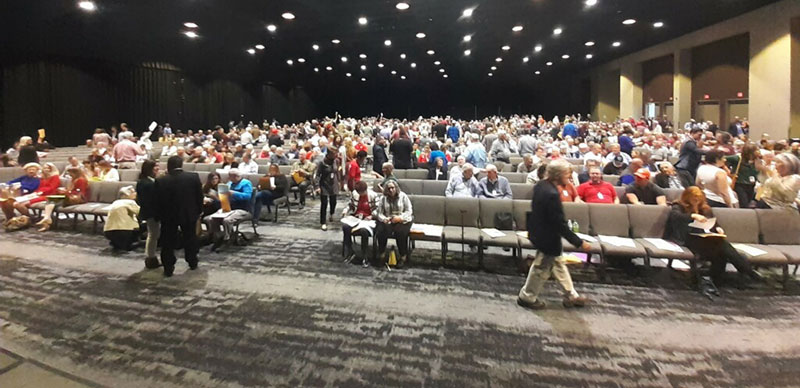
Nearly 900 Greenville County Republican activists turned out at the Greenville Convention Center this Monday night for their biannual convention.
The doors opened at 6:10 p.m. so that delegates would have time to register for the 7:00 p.m. convention, which didn't actually commence until after 7:30 because of the number of delegates who needed to be checked in.
WORD 98.9 radio host Charlie James served as moderator for the opening of the convention, after which he turned the microphone over to Mark Bonnoitt, political director of the state party. Earlier this year the state party took the unprecedented step of removing control of the reorganization and convention process from the local party leadership.
During the vote for president of the convention, it soon became clear what practically everyone in the room already knew – that there was a well-defined, nearly 50-50 divide among the delegates. Most of the delegates rallied behind either one of two groups that evening, America First and GOP Unity
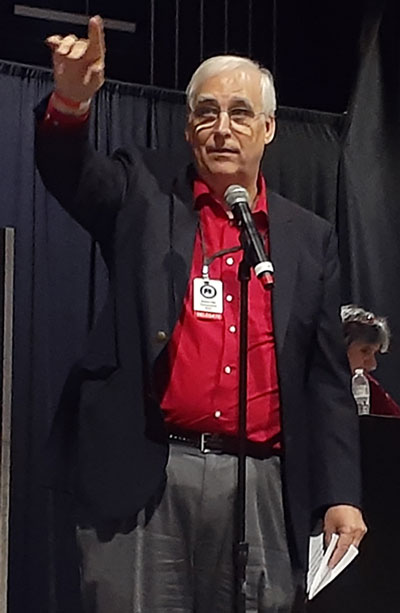
Ray Sheen
Ray Sheen, parliamentarian for the local party and a part of the America First movement, and Chris Sullivan, a long-time party activist who was backed by GOP Unity, were nominated to serve as temporary president of the convention. A voice vote was too close to call, after which Bonnoitt asked for a standing vote.
After that vote was also too close to call, Bonnoitt then asked supporters of each candidate to line up on one side of the room or the other. Both sides were obviously closely evenly divided, but Bonnoitt ruled that the vote went to Sheen, who then took over and presided the rest of the evening.
The main purpose of the convention was to elect new party leadership for the next two years. The leadership at the beginning of the evening consisted of chairman Jeff Davis, first vice-chair Yvonne Julian and state executive committeeman Mike Voaden. The state executive committeeman represents Greenville as a member of the state executive committee, which meets in Columbia. These individuals are leaders of the America First faction.
All three of these individuals simply shuffled the deck for Monday night's election. Julian ran for chairman, Voaden for first vice-chair and Davis ran for state executive committeeman.
A group of fellow conservatives under the GOP Unity banner nominated their own slate of candidates, all long-time party members. Sam Manley ran for chairman, long-time county councilman Joe Dill tossed his hat in the ring for first vice-chair and former school board member Julie Hershey vied for the state executive committeeman seat.
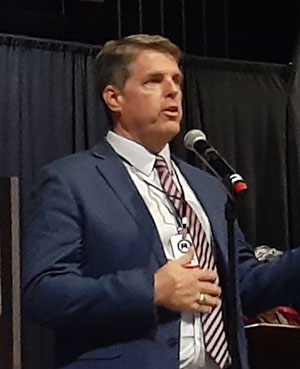
Jeff Davis
The vote on the leadership of the party, which finally took place after 10:00 p.m., resulted in a split ticket. Julian won her chairmanship race by a vote of 438 to 405 and Dill became first vice chair by a vote of 439 to 402. Obviously, some of the supporters of Julian and Davis crossed over and supported Dill.
Davis will go to Columbia as state executive committeeman. He won against Hershey by a vote of 456 to 335. Camden Gearhart, a 19-year-old college student and a last-minute surprise nominee for the seat, won a handful of votes.
The party seems more divided than ever. For the past year or two, there has been ongoing acrimony, especially between Davis and former county chairman Nate Leupp, who have been fanning the flames with constant emails and Facebook posts attacking the other side.
Even on the morning after the convention, an email from myscgop, which is Davis' group, claimed that the GOP Unity slate of candidates was “controlled by the RINOs (Republicans in Name Only).”
In a Facebook post that same morning, Leupp made the claim that under Sheen's presidency of the convention, there were “shady rule violations that happened all night.”
The rhetoric has been so strong, especially with each side calling the other side RINO's, that an observer could not have been faulted for being less than sanguine as to the prospects of both sides ever coming together again to fight their common enemy – liberals and Democrats. Yet, most of the people in attendance, on both sides of the party, probably agree on most of the issues.
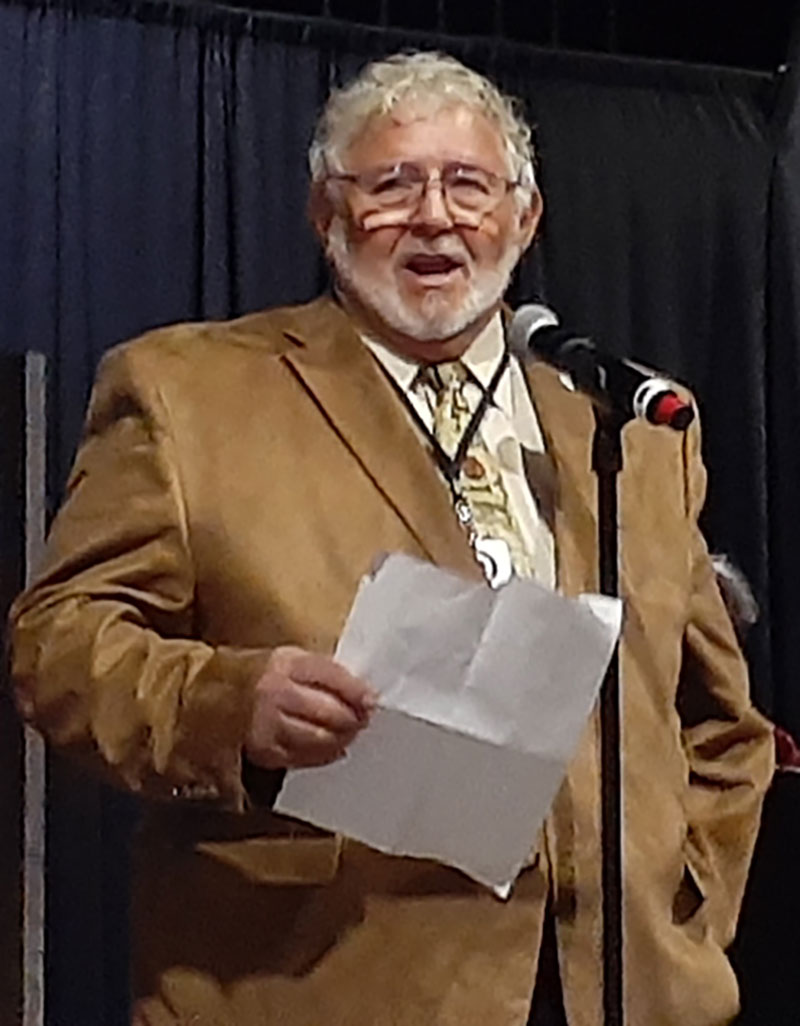
When Dill was asked how he hopes to go forward as an officer in a divided party, he said, “I'm hoping that I can be the catalyst that pulls it all together, and all of these people that you saw here tonight, they are part of my plan.” He said that he wants to start prayer meetings. “Let's put God in the middle of this thing instead of politics and then He can fight our fight.”
Another important piece of business at the convention was the election of delegates to represent Greenville at the state convention, which will take place sometime in May. The exact date has not yet been announced by the state party leadership.
A ten-page list of candidates was given to each county delegate when they received their packets at check-in. The 750 candidates were vying for 90 delegate seats to the state convention. A motion to send 180 half delegates, as has been done at previous conventions, instead of the 90 whole votes., was soundly defeated. Results of this vote will be announced at a later date.
Both groups handed out lists of the 90 individuals whom they thought would best represent their interests at the state convention. Evert Headley, a long-time Republican activist who publishes before each regular election a list of candidates whom he calls Evert's Electables, also handed out his own list.
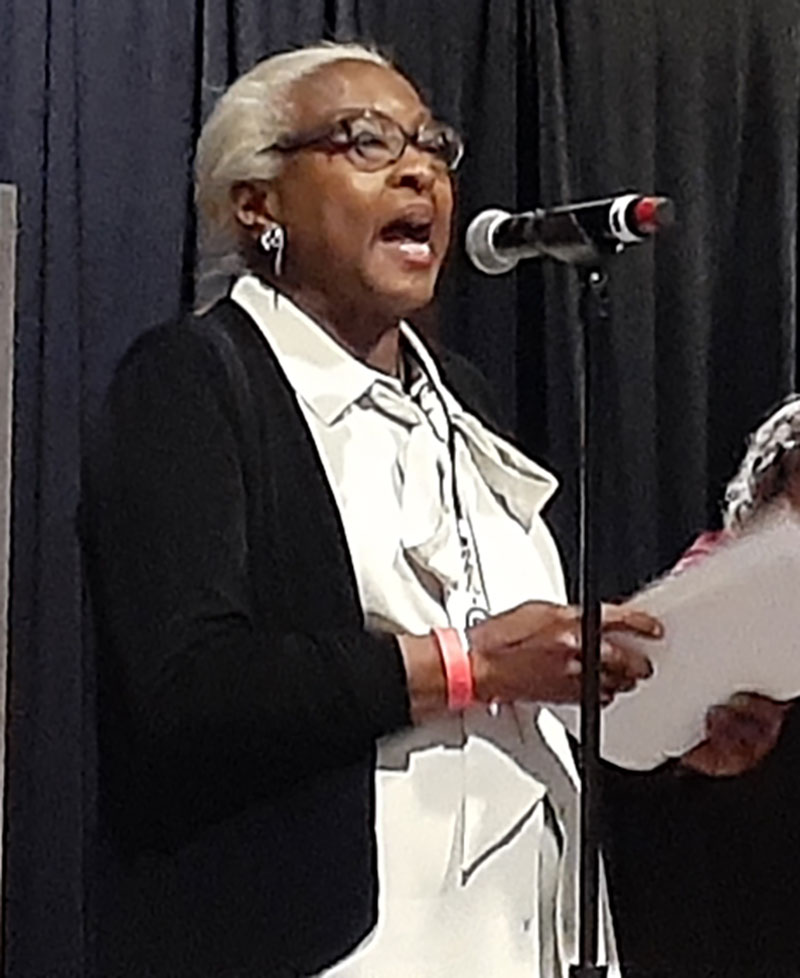
Another item of business was a proposed censure of members of the South Carolina Republican Caucus. The leadership of the caucus has unreasonably refused to admit several of their fellow Republican lawmakers into their caucus because these members, who refer to themselves as the Freedom Caucus, refuse to sign a newly-instituted pledge that would preclude them from endorsing any future challenger to any fellow Republican lawmaker.
Sheen said that the county party could not censure elected officials who have no connection to Greenville County. After some debate, delegate Harrison Musselwhite, a member of the America First faction, with Chairman of the SC Freedom Caucus Rep. Adam Morgan offered a slightly revised resolution, calling for condemning, rather than censuring, the South Carolina Republican Caucus. The resolution passed overwhelmingly and a slither of unity was seen towards the end of the meeting.
















